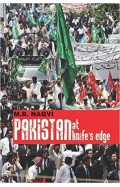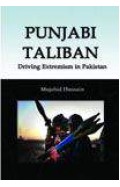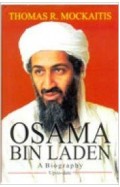Turkey, the US and Iraq
By: William Hale
-
Rs 180.00
- Rs 400.00
- 55%
You save Rs 220.00.
Due to constant currency fluctuation, prices are subject to change with or without notice.
We are offering a high discount due to slightly damage.
The American-led invasion of Iraq in March 2003 has affected Turkey's foreign policy in unpredictable ways. On the one hand stood Turkey's vital alliance with the US, stretching back to the early days of the cold war; on the other, the strong opposition of the Turkish people to the invasion of Iraq. One of Iraq's most important neighbours and America's only formal ally in the region, Turkey gave vital support to the US during the first Gulf war. In the second Gulf war, America sought to project itself as the champion of democracy in the Middle East. Turkey, as the only Muslim country in the region with an acceptably democratic form of government, refused to support the US strategy. The challenge faced by the Turkish government has been to sustain good relations with the superpower, while remaining answerable to its own people. To explain Turkey's changing foreign policy, William Hale examines the relationship between Turkey, the US and Iraq since the 1920s, when the Iraqi state was first established. He also analyses Turkey's policies towards Iraqi Kurds and its 'Europeanisation' as the country aligns itself with the EU.
We are offering a high discount due to slightly damage.
The American-led invasion of Iraq in March 2003 has affected Turkey's foreign policy in unpredictable ways. On the one hand stood Turkey's vital alliance with the US, stretching back to the early days of the cold war; on the other, the strong opposition of the Turkish people to the invasion of Iraq. One of Iraq's most important neighbours and America's only formal ally in the region, Turkey gave vital support to the US during the first Gulf war. In the second Gulf war, America sought to project itself as the champion of democracy in the Middle East. Turkey, as the only Muslim country in the region with an acceptably democratic form of government, refused to support the US strategy. The challenge faced by the Turkish government has been to sustain good relations with the superpower, while remaining answerable to its own people. To explain Turkey's changing foreign policy, William Hale examines the relationship between Turkey, the US and Iraq since the 1920s, when the Iraqi state was first established. He also analyses Turkey's policies towards Iraqi Kurds and its 'Europeanisation' as the country aligns itself with the EU.
Zubin Mehta: A Musical Journey (An Authorized Biography)
By: VOID - Bakhtiar K. Dadabhoy
Rs 472.50 Rs 1,050.00 Ex Tax :Rs 472.50
Paradise Beneath Her Feet: How Women Are Transforming the Middle East Council on Foreign Relations Book
By: Isobel Coleman
Rs 225.00 Rs 500.00 Ex Tax :Rs 225.00
Myths Illusions and Peace: Finding a New Direction for America in the Middle East
By: Dennis Ross
Rs 876.00 Rs 1,095.00 Ex Tax :Rs 876.00
Operation Dark Heart: Spycraft And Special Ops On The Frontlines Of Afghanistan And The Path To Victory
By: Anthony Shaffer
Rs 1,800.00 Rs 2,250.00 Ex Tax :Rs 1,800.00
Anna Hazare: The Face Of Indias Fight Against Corruption
By: Pradeep Thakur
Rs 225.00 Rs 300.00 Ex Tax :Rs 225.00
How To Win A Cosmic War God Globalization And The End Of War
By: Reza Aslan
Rs 556.00 Rs 695.00 Ex Tax :Rs 556.00
Witness To America: A Documentary History Of The United States From The Revolution To Today
By: Douglas Brinkley
Rs 3,996.00 Rs 4,995.00 Ex Tax :Rs 3,996.00
Paradise Beneath Her Feet: How Women Are Transforming the Middle East Council on Foreign Relations Book
By: Isobel Coleman
Rs 225.00 Rs 500.00 Ex Tax :Rs 225.00
No recently viewed books available at the moment.
Zubin Mehta: A Musical Journey (An Authorized Biography)
By: VOID - Bakhtiar K. Dadabhoy
Rs 472.50 Rs 1,050.00 Ex Tax :Rs 472.50
Paradise Beneath Her Feet: How Women Are Transforming the Middle East Council on Foreign Relations Book
By: Isobel Coleman
Rs 225.00 Rs 500.00 Ex Tax :Rs 225.00













-120x187.jpg?q6)
















